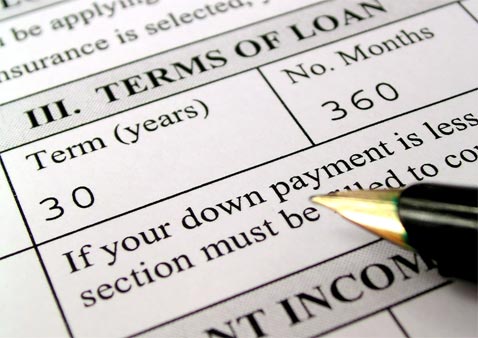We’ve all been there, considering whether or not to get a personal loan. Personal loans can come in many flavors and people feel the need to get a personal loan for many reasons. The most common, unfortunately, is for debt consolidation. This can be a smart way to handle debt (especially high interest debt) but only if you have addressed the underlying causes and spending behavior that led to the high debt. Without changing your behavior, it won’t be long before you owe the personal loan amount plus new debts.
The first thing to consider is whether you really need a loan? Seriously, examine your situation and see if you need a loan or if you are taking the easy way out. A financial planner can help you compare the advantages of a loan versus maintaining control over your current debts and restructuring how you are paying those debts. For example, many people top-up monthly payments on multiple debts and this is not a constructive way to pay down your debt. It keeps you on the perpetual hamster wheel of debt.
Second, if you do need a loan, be prepared to get yourself into the best position possible for a good loan. Spend several months working on getting your credit score up as much as you can. A higher score will help you qualify for a better loan. Keep in mind that the best terms for a loan may not be with any of your existing banking relationships. Going online with your improved credit score may very well be your best bet. Just make sure you are dealing with a reputable lender and check them out with the Better Business Bureau and as many review sites as you can. You want to improve your situation, not line the pockets of a scammer. Be very aware of pushy sales tactics, today only rates, no credit check or no documentation requirements, and especially be wary if asked for a cash deposit to secure the loan. These can all be red flags that the lender is not legitimate.
Third, READ the fine print. Educate yourself on loans and their provisions. Make sure you understand APY and APR (hint: go for the lower APR if possible). If you are not sure what those terms mean, you can read more from Investopedia. Once you decide on a lender, make sure you are allowed to review the loan terms and that you understand all the terms of the loan prior to signing on the dotted line. At the very least, you want to know the amount borrowed, the total amount repaid, the term of the loan, the rate and any other conditions such as pre-payment penalties.
A loan can be a useful tool in your financial toolkit. It can also lead you deeper into debt. Be sure that you do indeed need a loan prior to applying for one and know your endgame. If you have not addressed your spending and financial bleeding that led you to needing a loan, you likely should not apply for one.
As an independent Certified Financial Planner™, I can help you with a debt repayment strategy tailored to your goal, timeline and income. I can also help you compare repayment on your own, repayment assistance plans, or the value of a loan. Contact me and let’s get started! #talktometuesday #savings #loan #personalloan #CFPPro #hireaplanner

